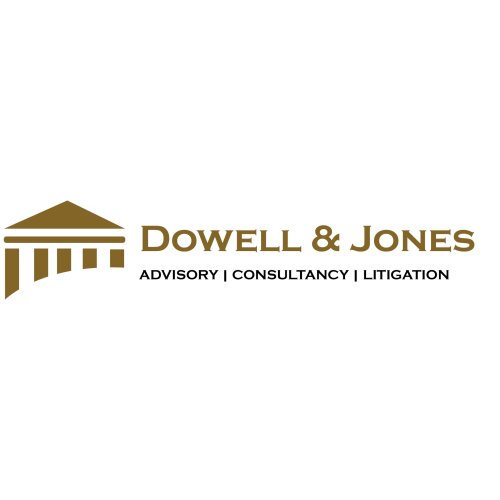Best Oil, Gas & Energy Lawyers in Blantyre
Share your needs with us, get contacted by law firms.
Free. Takes 2 min.
List of the best lawyers in Blantyre, Malawi
About Oil, Gas & Energy Law in Blantyre, Malawi
Blantyre, a key economic hub of Malawi, is experiencing a growing interest in the oil, gas, and energy sectors. Historically reliant on agriculture, Malawi is now exploring alternative sources of energy to diversify its economic base and foster sustainable growth. The development of the energy sector is pivotal in addressing energy shortages and supporting the nation's economic development. Consequently, the regulatory framework governing oil, gas, and energy activities in Blantyre is evolving to ensure sustainable exploitation of resources while promoting investment and environmental conservation.
Why You May Need a Lawyer
There are several scenarios where individuals or companies may require legal assistance in the field of oil, gas, and energy in Blantyre:
- Investment and Licensing: Navigating the complex process of obtaining licenses and permits for exploration, extraction, or energy production.
- Contract Negotiations: Drafting and negotiating contracts between stakeholders, such as joint ventures, service agreements, and lease agreements.
- Regulatory Compliance: Ensuring adherence to local and international regulations governing the oil, gas, and energy sectors.
- Environmental Concerns: Legal advice on environmental laws and regulations to mitigate the impact of energy projects.
- Dispute Resolution: Resolving disputes over land use, contract violations, or other disagreements among parties involved in oil, gas or energy operations.
- Taxation and Royalties: Understanding and managing the taxation and royalty frameworks applicable to energy-related activities.
Local Laws Overview
The legal landscape for oil, gas, and energy in Blantyre is governed by several key statutes and regulatory bodies:
- Petroleum (Exploration and Production) Act: This act regulates the exploration and production of petroleum and provides a framework for granting the respective rights.
- Electricity Act: Governing the generation, transmission, distribution, and supply of electricity. It outlines the roles of different stakeholders in the energy sector.
- Environment Management Act: Mandates environmental impact assessments for projects to ensure environmental protection in energy activities.
- Malawi Energy Regulatory Authority (MERA): The primary regulatory body responsible for overseeing the energy sector, ensuring compliance, and enforcing regulatory standards.
Frequently Asked Questions
What is the primary regulatory body for energy in Malawi?
The Malawi Energy Regulatory Authority (MERA) is responsible for regulating the energy sector, including oil and gas activities.
Do I need a license to explore for oil in Blantyre?
Yes, a license is required to explore for oil, and it is granted by the relevant authorities following the Petroleum (Exploration and Production) Act.
What are the environmental considerations for energy projects?
Projects typically require Environmental Impact Assessments (EIAs) to ensure compliance with environmental laws and guidelines.
How are royalties for oil and gas productions determined?
Royalties are determined based on the terms set in the licensing agreements and are subject to national laws and regulations.
Can foreign companies invest in Malawi’s energy sector?
Yes, foreign investment is allowed and often encouraged, although compliance with local laws and obtaining the necessary licenses is mandatory.
What should I do if there is a legal dispute over an energy project?
It is advisable to consult with a lawyer specializing in energy law to explore dispute resolution options, including negotiation, mediation, or litigation.
What taxes are applicable to oil and gas operations?
Oil and gas operations are subject to various taxes, including corporate tax, VAT, and other sector-specific levies. Consulting a tax expert can provide clarity on obligations.
Who is responsible for land acquisition for energy projects?
Typically, developers are responsible for acquiring land needed for projects, often requiring negotiation with landowners and adherence to land acquisition laws.
Are there incentives for renewable energy projects?
Malawi has policies designed to encourage renewable energy investments, including tax incentives and support for sustainable projects.
How can companies adhere to health and safety standards in the energy sector?
Compliance with national health and safety regulations, alongside adherence to international best practices, is crucial for industry players.
Additional Resources
For those seeking further information or assistance, the following resources may be helpful:
- Malawi Energy Regulatory Authority (MERA): The official regulatory body for energy matters in Malawi.
- Ministry of Natural Resources and Climate Change: Offers insights and guidance on policies related to natural resources and climate.
- Environmental Affairs Department: Provides resources on environmental management and regulatory compliance.
Next Steps
If you need legal assistance in oil, gas, or energy in Blantyre, consider the following steps:
- Identify Your Needs: Clearly define the legal issues or objectives you need assistance with.
- Research Legal Experts: Look for lawyers or law firms with expertise in the energy sector in Malawi.
- Consult Professionals: Schedule consultations to discuss your needs and explore potential legal strategies.
- Engage Legal Services: Based on your consultations, select the legal professional or firm that best suits your needs.
Lawzana helps you find the best lawyers and law firms in Blantyre through a curated and pre-screened list of qualified legal professionals. Our platform offers rankings and detailed profiles of attorneys and law firms, allowing you to compare based on practice areas, including Oil, Gas & Energy, experience, and client feedback.
Each profile includes a description of the firm's areas of practice, client reviews, team members and partners, year of establishment, spoken languages, office locations, contact information, social media presence, and any published articles or resources. Most firms on our platform speak English and are experienced in both local and international legal matters.
Get a quote from top-rated law firms in Blantyre, Malawi — quickly, securely, and without unnecessary hassle.
Disclaimer:
The information provided on this page is for general informational purposes only and does not constitute legal advice. While we strive to ensure the accuracy and relevance of the content, legal information may change over time, and interpretations of the law can vary. You should always consult with a qualified legal professional for advice specific to your situation.
We disclaim all liability for actions taken or not taken based on the content of this page. If you believe any information is incorrect or outdated, please contact us, and we will review and update it where appropriate.














